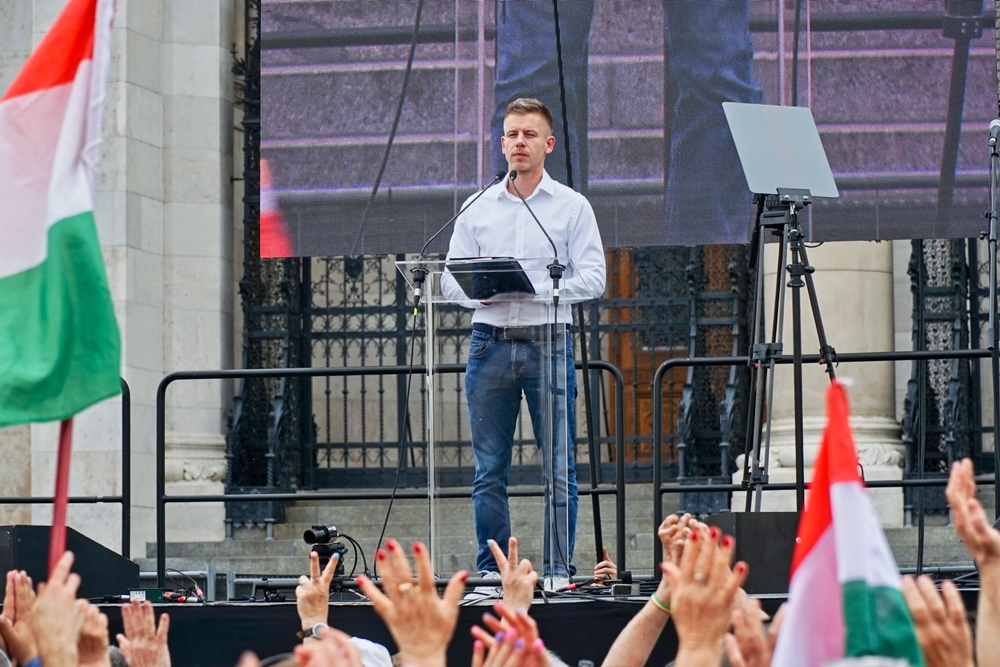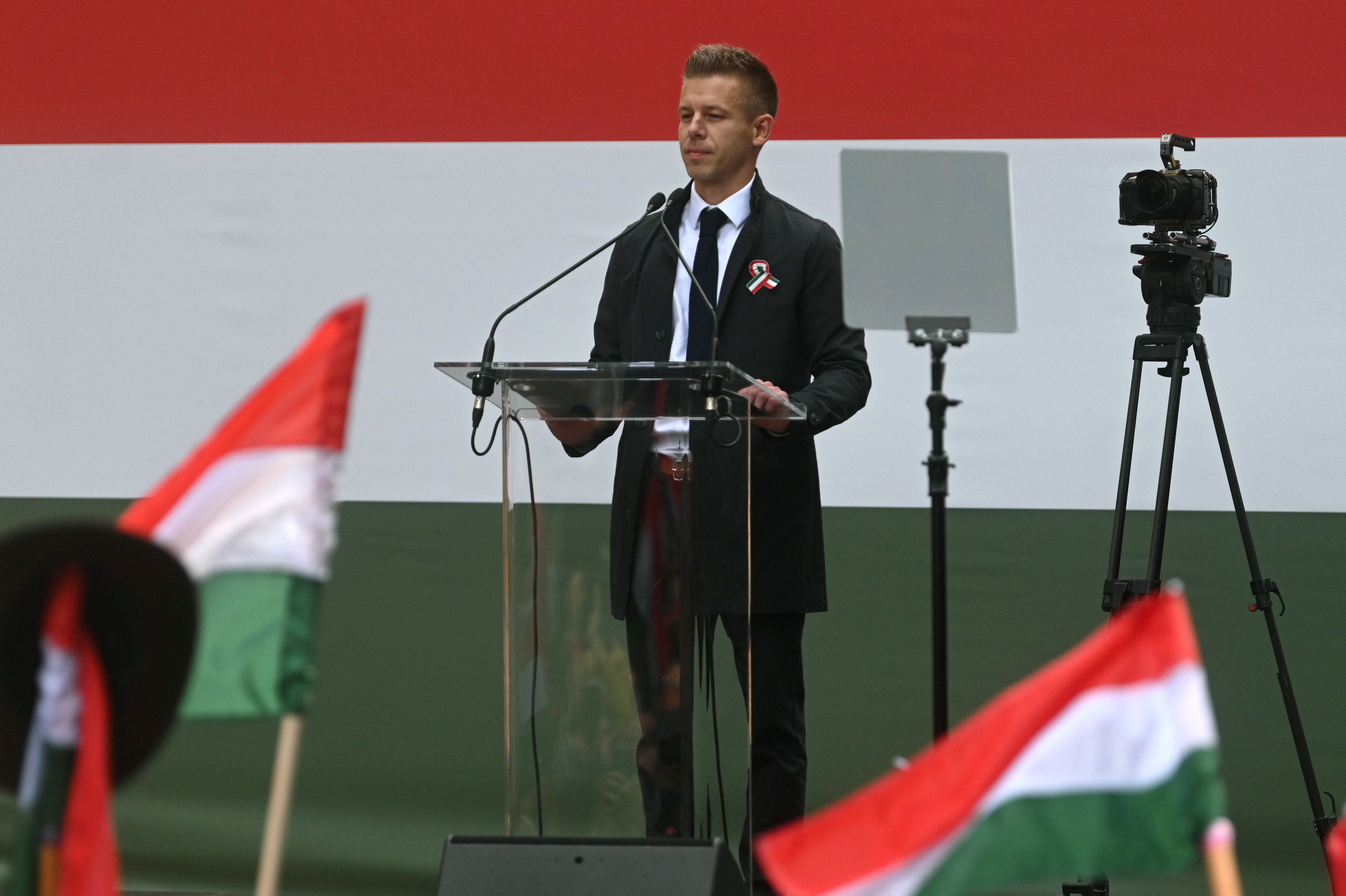Opposition hands Fidesz surprise local by-election defeat

In what press reports describe as a shock victory, Péter Márki-Zay, a candidate running on an independent ticket but backed by all major opposition parties, beat the candidate of the governing Fidesz-KDNP coalition in the mayoral by-election in Hódmezővásárhely (SE Hungary) by a surprisingly comfortable margin of 57% to 41%.
The result was unexpected not least because Hódmezővásárhely is regarded as one of the local strongholds of Fidesz power, according to online news site index.hu, which noted that the governing party has long won in local elections in the town by handsome margins.
Hódmezővásárhely is the home town of János Lázár, the current minister in charge of the Prime Ministerʼs Office, who served as the townʼs mayor for a decade from 2002 to 2012. The current by-election came about as a result of the death of Lázárʼs successor, István Almási, in November.
The opposition candidate received across-the-board support not only from the left and center of the political spectrum - from the Socialists (MSzP), Democratic Coalition (DK), LMP, Együtt and Momentum - but also from right-wing populist party Jobbik.
Despite strong negative campaigning aimed at discrediting him, Márki-Zay (57.49%) - described by index.hu as a disillusioned former member of Fidesz - comfortably beat Zoltán Hegedűs (41.63%), the Fidesz deputy mayor, confounding all predictions, prior analyses and polls suggesting a contrary result, noted index.hu. (By contrast, in 2014, the Fidesz candidate won with 61.03% of the vote over his nearest Jobbik rival, on 17.11%.)
Voter turnout in the latest by-election was strikingly high compared not only to other by-elections, but also to participation in previous regular elections, with some 61.35% of eligible voters casting their votes by 6.30 p.m.
Opposition buoyant, government unfazed
Gergely Karácsony, the MSzP-Párbeszéd candidate for prime minister, told index.hu that if Fidesz can be beaten in Hódmezővásárhely, they can be beaten anywhere.
"If forces are joined, there is victory," he said. "We must sit down once again with the democratic parties to coordinate in individual constituencies."
Asked whether this means talking with Jobbik, given that Márki-Zay was also backed by the right-wing party, Karácsony stressed that coordination must first be resolved among the left-wing parties.
In a video message, Gábor Vona, the Jobbik leader and prime ministerial candidate, described the victory as "a turning point," showing that there was hope for voters.
LMP co-president Bernadett Szél, likewise her partyʼs candidate for prime minister, described the victory as "breaking the ice," saying on Facebook that "the hate campaign failed, was unable to stop an excellent candidate, and was unable to keep people at home."
Former prime minister Ferenc Gyurcsány, who leads DK, said that "Márky-Zayʼs victory shows that more things unite democrats than divide them in the battle against [Prime Minister Viktor] Orbán."
Following his defeat, the Fidesz candidate Zoltán Hegedűs announced his resignation as deputy mayor of Hódmezővásárhely.
Reacting to the independent candidateʼs win from the government side, János Lázár noted that Fidesz had gained the same number of votes as in 2014, and that this showed the party had maintained the trust of its voters. He noted that Hódmezővásárhelyʼs voters have opted for a new direction in leadership, but that Fidesz would continue to work in the interests of developing the town.
On Monday afternoon, current affairs site hvg.hu cited Orbán as saying that Fidesz would need to work twice or three times as hard in the face of unity among the opposition, but deflected a question about a possible change in party strategy to return to his governmentʼs core theme of migration.
"If our community stays in government, then Hungary will not be a country of immigrants; if the opposition gain power, Hungary will be a country of immigrants," he warned. "I would like people to consider this question with the appropriate weight and seriousness."
Lessons to be learned?
Index.hu ventured to draw several conclusions from the result with respect to the nationwide political situation, and looking forward to general elections in just six weeks on April 8.
First, it noted, the result suggests that there is the possibility of broad-based cooperation among the opposition parties, including Jobbik, unthinkable some years ago when the latter was regarded as an extreme-right party.
Second, index.hu noted, the result appears to show the breaking of the large "central force field" occupied by Fidesz, outside of which the smaller parties circulated in separate orbits, incapable of cooperation with one another. This theory, it noted, works only as long as no candidate can be found behind which the two larger opposition parties - the Socialists and Jobbik - are able to unite.
The analysis nevertheless noted that it remains to be seen if such cooperation can work in parliamentary elections, where the identity of the opposition candidate with the most realistic chance of winning will often be not nearly so obvious as it was in Hódmezővásárhely.
In the wake of victory in such a well-recognized Fidesz stronghold, the index.hu analysis also pointed to the enormous pressure the opposition parties may now come under from voters to set aside differences and unite behind single candidates in a bid to unseat Fidesz in marginal constituencies. It recalled that in the previous elections in 2014, Fidesz won over 50% of the vote in only 20 of the 106 individual constituencies, while in the remainder the combined - but disunited - opposition technically polled more votes.
Index.hu nevertheless noted that the other opposition parties can hardly be expected to enter into coalitions with Jobbik at the national level. At best, it added, a "quiet cooperation" could be entered into whereby Jobbik and the other opposition parties reach mutual agreements to withdraw candidates in constituencies where the other has a clearer chance of winning.
On the governmentʼs part, index.hu observed that the by-election result suggests that negative campaigning, including attempts to discredit opposition candidates, may prove to be counterproductive. In addition, it speculated, the governmentʼs nationwide anti-migrant and anti-EU campaigns of recent times may have their limits in terms of influencing voters in individual constituencies.
SUPPORT THE BUDAPEST BUSINESS JOURNAL
Producing journalism that is worthy of the name is a costly business. For 27 years, the publishers, editors and reporters of the Budapest Business Journal have striven to bring you business news that works, information that you can trust, that is factual, accurate and presented without fear or favor.
Newspaper organizations across the globe have struggled to find a business model that allows them to continue to excel, without compromising their ability to perform. Most recently, some have experimented with the idea of involving their most important stakeholders, their readers.
We would like to offer that same opportunity to our readers. We would like to invite you to help us deliver the quality business journalism you require. Hit our Support the BBJ button and you can choose the how much and how often you send us your contributions.







